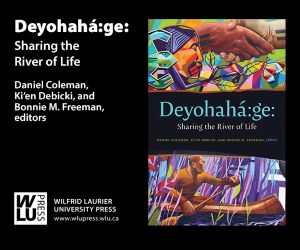When Pierre Trudeau died the Calgary Herald published a commentary calling him a Communist. As late as 1989 an Alberta Liberal running for a Senate seat drew protest after describing Trudeau as “a great Canadian.”
The provincial party has not won an election in more than a century. If voters send a handful of Liberals to Ottawa from time to time, statistically a Canadian has a better chance of visiting outer space than earning an MP’s pension as an Alberta Liberal. The last to serve three terms left office 16 years ago.
Yet author Darryl Raymaker recalls Trudeau was once cheered on horseback in the Calgary Stampede parade and received an honorary doctorate from the University of Alberta. He was “our very own JFK,” writes Raymaker.
If Trudeaumania was muted in Alberta in 1968 – one Liberal candidate in Red Deer had his car windows shot out – there were ripples of enthusiasm. “Western Canadians with a longstanding grievance against central Canada saw that Trudeau was different,” writes Raymaker. “Not only young and exciting, he was a potential leader from Québec who could put Québec in its place.”
Raymaker is a longtime Calgary barrister and Liberal organizer. Trudeau’s Tango is part memoir, part documentary of the geographic, cultural and political divisions that are a permanent fixture of Confederation. The fact we held it together remains a world-class achievement.
Prairie residents then were their own distinct society. Many were Dust Bowl refugees only a generation removed from pioneer sodbusters. They were hard people in a hard land. Author Raymaker recalls a 1969 Kiwanis Club speech by the Chief Justice of the Alberta Supreme Court, Val Milvain. “When police brutality is played up by the news media, it is playing into the hands of those who want to disrupt law and order,” said Justice Milvain; “We will be destroyed by the noisy clamorers after what they call ‘civil rights’.”
The law-and-order speech came the same year Trudeau liberalized divorce laws and decriminalized gay sex. The two worlds were bound to collide.
In 1968 Liberals elected four Alberta MPs. By 1972 the party was decimated. “Their promise of 1968 shattered, they had gone down to a resounding defeat in every riding,” recalls Raymaker. What went wrong?
Farm protests and political foul-ups didn’t help. The provincial party contemplated a coalition with the decrepit Social Credit movement. “It was like necrophilia,” as former Alberta Liberal leader Nick Taylor once put it. And there was the Official Languages Act, passed in 1969.
“Many English-speaking people across Canada, Albertans prominent among them, were outraged at the federal government ‘shoving French down our throats’,” writes Raymaker; “English-speaking Canadians generally seemed to tolerate bilingualism so long as it included being tough with Québec or staring down the separatists.”
Bilingualism was considered alien, overbearing and Québec-centric. In Alberta today, French immersion runs at 6 percent. More than a third still oppose the Languages Act, according to federal polling.
Canadian history is much more than vanilla-bland observances. Trudeau’s Tango is a fresh and lively account of politics with sharp elbows.
By Holly Doan
Trudeau’s Tango: Alberta Meets Pierre Elliott Trudeau, 1968-1972 by Darryl Raymaker; University of Alberta Press; 244 pages; ISBN 9781-7721-22657; $24.95








